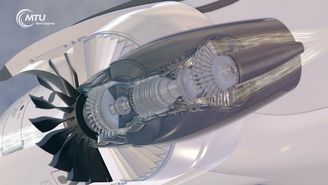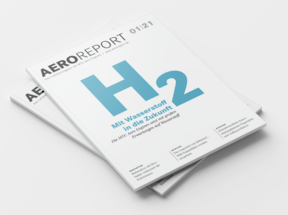
Press archive detail
Results of NEWAC technology program now presented
• Two-day workshop in Munich
Munich, June 30, 2010 – What will the engine of the future be like? How can high-pressure compressors be designed to boost efficiencies even further? What promise does the use of intercoolers and recuperators hold? What innovative technologies will the combustor of the future incorporate? And which novel design and production processes does the industry need to be able to build tomorrow's engines? NEWAC (New Aero Engine Core Concepts), a European technology program led by MTU Aero Engines, has contributed to some of the answers to these questions. The results of the collaborative research effort were presented in late June.
99 experts in their respective fields convened in Munich for a two-day work-shop to present and discuss the results of their work: over four years of extensive research, four new, highly innovative core engine configurations for game-changing propulsion systems were explored, which also included the integration of intercoolers and heat exchangers; some of the technologies are already being validated. New, lean-combustion concepts for very low oxides of nitrogen (NOx) emissions were developed and tested. The partners in the program conducted intensive test runs with compressors and novel, active control systems to improve stability and efficiency. These tests, too, yielded very promising results. The design of efficient and lightweight compressors were also studied.
"The money spent by the EU and the program partners is an investment that will pay dividends: It makes a major contribution towards a cleaner environment, and at the same time helps Europe's engine industry to remain competitive in the global marketplace," explained Stephan Servaty, senior manager, technology programs at MTU and NEWAC coordinator. Plans are to infuse all results obtained into future engines to make them fuel thriftier and cleaner. The goal is to reduce fuel burn and carbon dioxide (CO2) emissions by up to six percent and NOx emissions by as much as 16 percent. Says Servaty: "The findings of this program, together with the insights gained in the VITAL technology program, will contribute substantially to achieving the ACARE targets for 2020." ACARE calls for the development of technologies that permit fuel consumption and CO2 emissions in air traffic to be cut by 50 percent by 2020, with the engines contributing about 15 to 20 percent of the improvements. Overall, the aim is to reduce NOx emissions by 80 percent and noise pollution by ten decibels, which is equivalent to a reduction in perceived noise to one half of year 2000 levels.
The NEWAC technology program is an integrated project co-funded by the European Commission under the Sixth Framework Program. European organisations, i.e. seven European engine manufacturers - AVIO, MTU Aero Engines, Rolls-Royce, Snecma (Safran Group), TechspaceAero, Turbomeca, Volvo Aero -, medium-sized businesses, universities and research centres are partnering in the collaborative research effort; they set up working groups and defined test set-ups, computational models and theoretical methods. The program was led by MTU Aero Engines, Germany's leading engine manufacturer.
About MTU Aero Engines
MTU is a long-established player in the global engine industry and has a total workforce of about 7,600 employees worldwide. In fiscal 2009, the company posted consolidated sales of some 2.6 billion euros. In the commercial area, MTU Maintenance is the world's largest independent provider of engine maintenance services. In the military arena, MTU is Germany's industrial lead company for practically all engines flown by the country's armed forces. The engine manufacturer is a global technology leader, excelling in low-pressure turbines, high-pressure compressors, and manufacturing and repair techniques.



